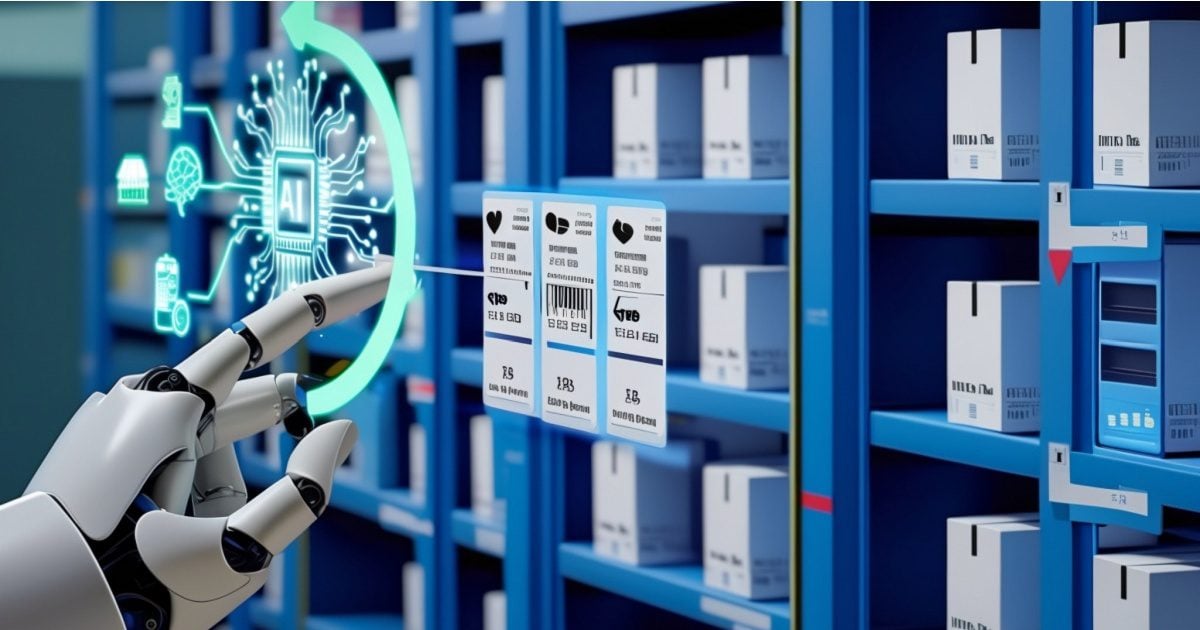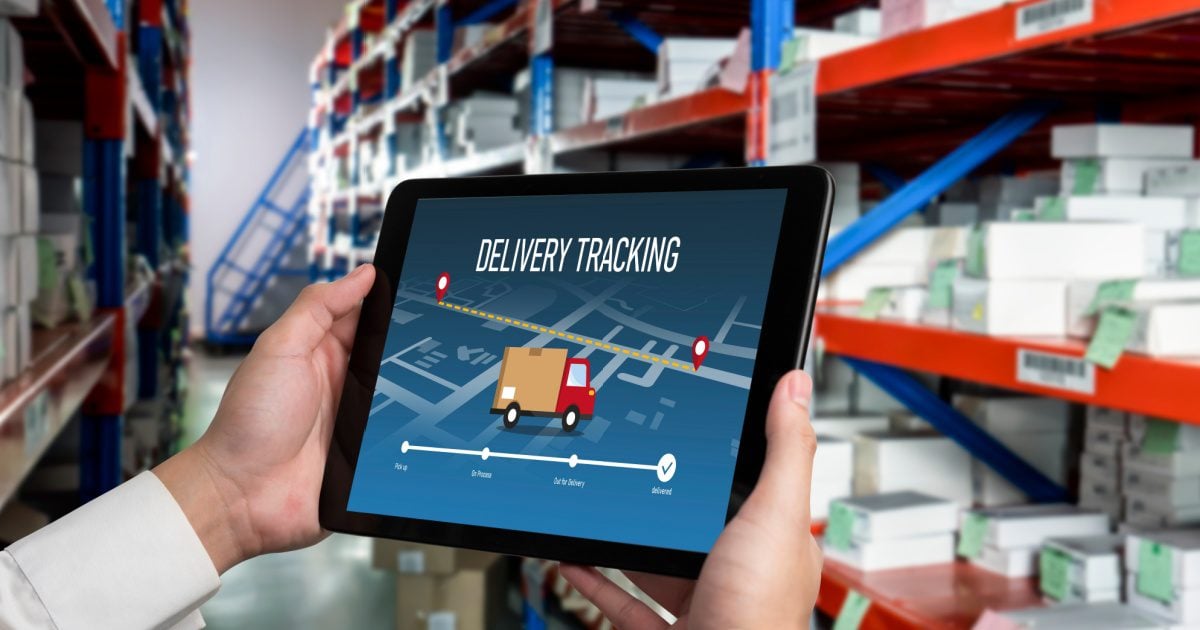
Riding on emerging tech to supercharge healthcare logistics

Patient care remains a foremost need in modern healthcare, yet providers still grapple with stubborn logistics pain points. From delayed deliveries of critical supplies to labor-intensive medication dispensing and opaque cold-chain tracking, these and other challenges tie up valuable resources, increase staff workload, and potentially lead to undesirable outcomes.
New technologies, however, are transforming how healthcare providers manage logistics, from predictive planning to supply chain transparency. By integrating AI, blockchain, IoT, and smart sensors into their operations, providers can overcome traditional bottlenecks and improve patient care.
Lightening the logistical burden of clinical staff
Nurses and clinicians often spend hours daily tracking inventory, coordinating deliveries, or manually updating supply records. While these are important tasks, they reduce the time spent on patient care.
For example, addiction-treatment clinics in Baltimore are deploying methadone-dispensing robots that prepare over one million doses a year, slashing nurses’ prep time and redirecting staff toward direct patient engagement. More importantly, clinicians and nurses can reclaim hours of their workday, improving both care quality and staff morale while reducing burnout-related turnover.
In the United States, Mayo Clinic’s hospital-wide AI program is streamlining everything from inventory forecasting to micro-robotic drug delivery, freeing clinicians to focus on higher-value care and signaling a broader shift toward predictive, data-driven operations.
Creating real-time visibility into supplies and delays
Stockouts of essential medications – especially those needed in ICUs or required by chronic disease patients – can interrupt care plans, cause adverse outcomes, and increase readmission risk. Without real-time insights, providers cannot anticipate supplier disruptions, locate in-transit items, or respond to shifting inventory levels.
The solution? End-to-end supply chain visibility platforms using IoT, blockchain, and predictive AI provide real-time updates across every node of the logistics network. With greater control and agility, healthcare providers reduce delays, enhance responsiveness, and improve operational confidence in delivering timely care.
With machine learning models trained on historical consumption patterns, hospitals can forecast inventory needs for specific departments, preventing shortages or overstock. AI also automates repetitive administrative tasks such as order reconciliation, inventory restocking, and supply chain optimization.
Rush University Medical Centre uses AI to track and review inventory levels, with a backorder dashboard that creates alerts when automatic supply-refill levels are low, inventory is low at their supplier’s distribution center, or shipments from manufacturers are taking longer than anticipated. This enables them to anticipate and avoid backorder issues and prevent disruption to operations.
Improving transparency and traceability with blockchain
Blockchain technology creates an immutable, shared ledger of every transaction across the supply chain. In healthcare, this translates to reliable medication authentication, verifiable cold-chain integrity, and enhanced accountability among suppliers and distributors.
Predictive analytics and blockchain-enabled inventory tracking can forecast medication demand, prevent shortages, and authenticate the origins of supply to reduce counterfeit risk. Patients receive uninterrupted treatment, pharmacists gain greater visibility and smarter procurement decisions, and administrators build more resilient supply networks.
UNICEF’s blockchain-enabled vaccine supply chain pilot in Bangladesh, which has made every vial traceable in real time, is projected to protect an additional 500,000 children by eliminating stockouts and spoilage.
The blockchain-powered Vaccine Intelligence Network (VaxIN) tracks vaccine batches in real-time to ensure proper refrigeration throughout the supply chain. The result: reduced vaccine spoilage, improved delivery planning, and stronger community trust in immunization programs.
Real-time physical tracking with IoT and smart sensors
Surgical cancellations can occur due to logistical challenges, including delays in patient transport, unavailability of surgical tools, and missing sterilized kits. Furthermore, rural locations and resource-limited settings can exacerbate the problem. Such logistical breakdowns waste resources and reduce patient satisfaction.
Sophisticated systems can feed continuous data on temperature, usage, and location directly into logistics dashboards, creating in-depth monitoring on the condition and availability of medical supplies.
The tracking and monitoring extend beyond the logistics movement. On-site critical treatments may be postponed because essential equipment (infusion pumps, diagnostic devices, or ventilators) is unavailable due to poor resource control or misplaced because of improper inventory management.
Asset-tracking systems using RFID, IoT sensors, and AI-enabled location intelligence allow hospitals to monitor equipment availability and location in real-time. This massively reduces search time, forecasts equipment availability, accelerates treatment delivery, and minimizes treatment delays, enabling providers to direct resources where they matter most. Furthermore, automation and AI-driven scheduling systems can sync patient records with operating room logistics and inventory systems, flagging issues before they cause disruptions.
In Singapore hospitals, RFID-enabled smart cabinets are playing a crucial role in operating theater readiness. Designed for automatic stock-taking without human supervision, these smart cabinets record entries when items are added, removed, or returned. A wireless 5G data link enables seamless data upload, allowing real-time reliable tracking of medical implants and other valuable inventory, meticulously capturing expiry dates, batch numbers, and other essential data.
Solving old problems with new tech in healthcare logistics
Blockchain, AI, and automation have evolved from abstract buzzwords to practical tools that close logistical gaps, raise efficiency, and ultimately elevate patient satisfaction. AI forecasts and manages inventory patterns, ensuring availability and reducing wastage, while blockchain ensures veracity and improves trust. Meanwhile, IoT and smart sensors provide accurate, always-on inventory tracking at ground level, without the need for human oversight.
The message is clear. In resolving long-standing challenges in healthcare logistics, new technology can play a starring, multi-faceted role. Logistics providers adopting groundbreaking technology such as AI, blockchain, IoT, and smart sensors can lead the march towards improved patient safety and outcomes.
With the right technology, healthcare systems have the means to re-engineer operations around what matters most: timely, personalized, effective care.
ALSO WORTH READING















 English
English